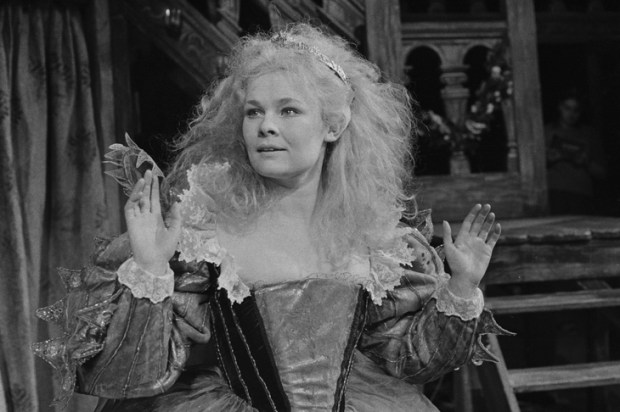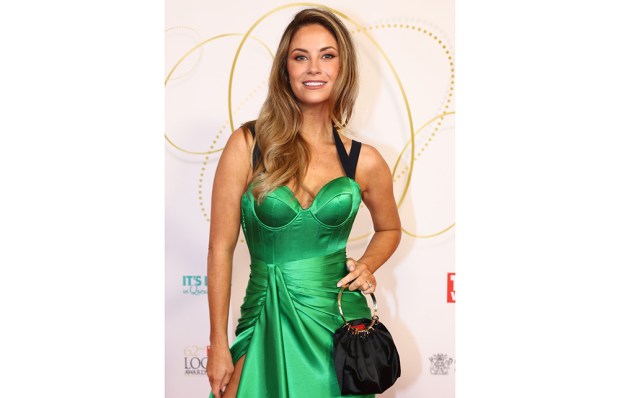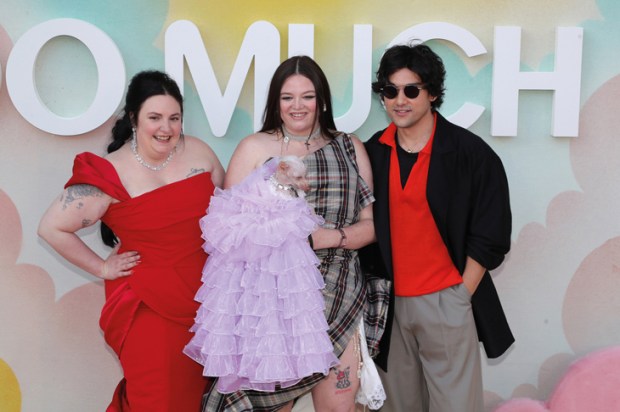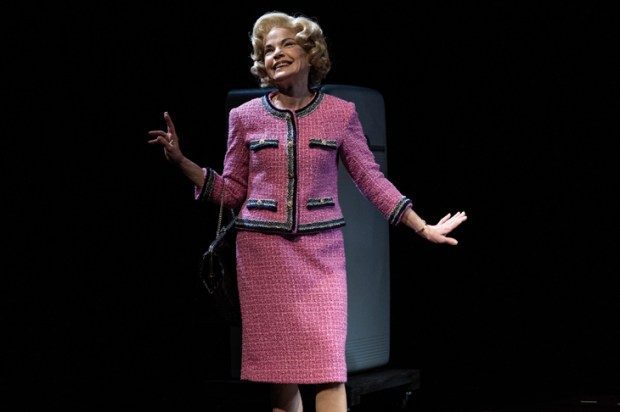Every so often a bit of streamer television comes along and makes you grateful for what the form can achieve rather than the other frequent attitude of seeing it as something that assumes the virtues of film and television while having neither. Well, Baby Reindeer belies this because the four hours or so of its unfolding amount to some kind of masterpiece. It’s not flawless but it’s a riveting and enthralling example of what the longer form of the streamer can achieve and it keeps you watching into the dark middle of the night as a world of precipitous and preposterous persecution unravels like the conundrum of identity itself.
This is the one about the stalker and the comedian and it will take you where you haven’t dreamt of (or only when you’re riding nightmares). It is written both in its verbal detail and in its own overall schematics by Richard Gadd and it is billed as a true story.
It begins with a likeable looking guy who works in a bar giving a portly but charming looking woman a cup of tea on the house. Before he knows what’s happening she is bombarding his social media with messages about how captivating he is and what she wants to do with his cuteness which he’ll want like the enactment of his deepest desires. Her language is lascivious, laughable, compelling as a curse. When he finally goes to tell the police, an amiable but dim copper can’t believe it’s taken him six months.
But the crisis unfolds a world of systematic sexual exploitation (including rape).
Baby Reindeer summons up a credible picture of London just pre-Covid though the two leading characters are Scottish, she emphatically, he understatedly. But their performances are staggering. Jessica Gunning as the woman who inflicts torture to get what she wants gives a performance that rivals Miriam Margoyles’ riddling act of empathy with her Dickens Women.
And Richard Gadd as the comedian whose life she tears into shreds which turn out to be tokens of a selfhood he staggers towards, bewildered, and rises to meet her in a performance which is full of outrage and poignancy. It is a superlative performance and (as with Gunning) deserves all the accolades in the world. Gadd encompasses so much pain and mental distress and passivity in the face of cruelty that seems kind so that this tragic comedian is like someone bewitched by the ghost of his own uncertain attempts to find himself.
Baby Reindeer manages in a way that’s a bit miraculous to escape the net of class. There is a group of private (read public) schoolboys who have taken a gap year not to travel but to cavort and take drugs. There’s the trans woman, Nava Mau, to whom the Reindeer has an ambivalent attraction and a policewoman who warns him he could be seen as the villain.
There’s plenty of confusion and kindliness which make you gape. There’s a fantasia where the leading guy has sex with his nemesis. There’s a scene where he admits how stuffed up he is to his Scottish parents (adoring mum, dour dad). The Catholic Church gets used as a too easy shortcut here but the revelation is executed with great dramatic power.
The whole of Baby Reindeer would be a kind of hellish exercise in bad taste if it did not have the sweep and power of intense emotion exhibited as a form of manic delusion or of groping confusion. This bit of streamer television messes with your head like a coded message from a lost world.
It’s dumbfounding to find such dramatic grandeur in such an improbable place. Sometimes Baby Reindeer seems to collapse for a moment into some abyss of confusion and self-mesmerised horror but it’s overall command of dramatic form is remarkable. It would be a normal reaction to back off in distaste after watching twenty minutes of this black and grotesque allegory of sexual terror but it would be a mistake. Baby Reindeer has all the poignancy in the world and it’s also fitfully and unpredictably funny.
It’s just so weird – so genuinely rich and strange – to have such a credible vision of the world presented through this distorting mirror of cruelty and heartbreak.
The new National Theatre Live offering Nye is a long way from this. It is about the legendary Labour politician, Nye Bevan, who created Britain’s National Health System and for that reason led the world. The story of how he did this involved the deal he struck with Lord Moran, the president of the Royal College of Physicians. Bevan’s own description of how he got the doctors onside is characteristically vivid. ‘I stuffed their mouths with gold,’ the great Welsh lefty said.
In Nye, Bevan is played by the Welsh actor Michael Sheen (who a long time ago was Mr Kate Beckinsale). He’s made a habit of impersonating famous figures: he was Tony Blair in Stephen Frears’ The Queen and David Frost in Frost/Nixon.
The actor who played Salieri in a production of Peter Shaffer’s Amadeus at the Opera House has the uncanny knack of turning into the famous figures he impersonates. Does he do this with Nye Bevan? It’s difficult to say when you don’t know the original. Nye opens with the great architect of the National Health System seriously sick in hospital and his wife Jennie Lee, the formidable politician, played here by Sharon Small, wants to keep the seriousness of his illness from him. We get re-enacted childhood horrors – canings and stutters – and his confrontations with Chamberlain and Churchill.
It’s all done with a lush Welsh camaraderie but the collective lilt and blather Tim Price has written is not a very good play and Rufus Norris’s production does nothing to diminish the hammy collectivism of this Welsh folk opera. Sharon Small, the best-known cast member apart from Sheen is also the best performer. Michael Sheen is impressive in his ageing way as the great man, but this doesn’t really look like one of his empathic impersonations in which he turns into the mask of history. Nye is one of those bits of theatre that pay homage to working class culture but in practice traduce it. Rufus Norris seems to like the voice of the people with the volume turned up and the upshot is bombastic caricature.
Got something to add? Join the discussion and comment below.
You might disagree with half of it, but you’ll enjoy reading all of it. Try your first month for free, then just $2 a week for the remainder of your first year.













